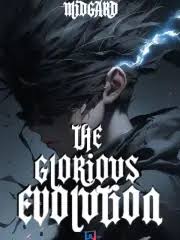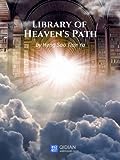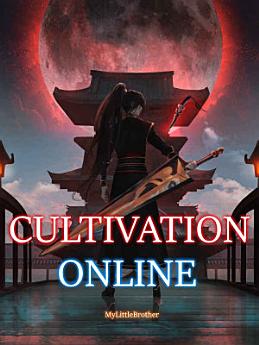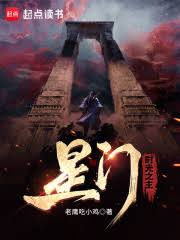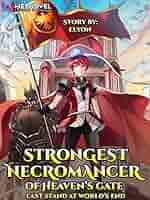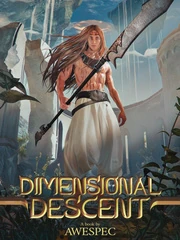The Story in 3 Sentences
In 2030, Earth collapses under the Nightcrawler invasion, where creatures from the Shadow dimension consume life and bind humans through Sleepwalker and Daywalker Contracts, plunging the world into apocalyptic decay.
Levi Larson, blinded and soul-bound to the Shadow at seven, survives years of torment only to awaken the Limitless System and dormant Thunder and Fire dragon bloodlines, marking him as the prophesied hybrid Primus Xal’Zaryon Drakonis.
As the Eternals forge abominations from corrupted souls and the Mharoti Empire enforces dragon sovereignty, Levi navigates trial worlds, divine conspiracies, and his own monstrous evolution to resist a fate written in mana and blood.
Why It Stands Out
1. When Apocalypse Meets Ascension
The Glorious Evolution doesn’t just blend post-apocalyptic survival with cultivation—it ignites a collision. Nightcrawlers don’t merely kill; they possess, feed on sunlight through life-drain, and twist humans into vessels via the Sleepwalker Contract, a mechanic that turns personal vulnerability into cosmic warfare. This isn’t a world where cultivators retreat to mountains to train—it’s one where the streets are littered with husks of the possessed, where cities burn under alien skies, and where evolution isn’t optional but enforced by extinction. The fusion feels urgent, visceral, and terrifyingly original, grounding god-tier power growth in the stench of urban rot and psychic decay.
2. A Hero Who Smiles Through the Darkness
Levi Larson isn’t another cold, vengeance-driven protagonist sharpened by loss. He’s blind, scarred, and spiritually chained to the Shadow dimension since childhood, yet he retains a gentle smile that unsettles allies and enemies alike. His resilience isn’t stoic—it’s human. He jokes, he doubts, he breaks, and then he rebuilds himself with the quiet fury of someone who refuses to let trauma define his soul. That emotional authenticity, paired with his escalating inhumanity as Primus Xal’Zaryon Drakonis, creates a tension few cultivation stories dare: the more powerful he becomes, the further he drifts from humanity. Fans don’t just root for Levi—they feel him.
3. Dragonblood in a Godless World
The Mharoti Empire isn’t just a backdrop—it’s a living, breathing hierarchy of arrogance, elemental dominance, and ancient bloodline supremacy. Dragons aren’t mythical beasts here; they’re rulers, politicians, warriors who wield fire, thunder, and ice as birthrights. Their society is rigid, elitist, and deeply threatened by Levi’s dual dragon blood and hybrid nature, which defies the very laws of mana. This isn’t just about power—it’s about identity, legitimacy, and the right to exist. Layered with divine deception, primordial wars, and soul-forged Phantoms created by the Eternals, the worldbuilding isn’t just deep—it’s tectonic, shifting beneath every chapter with the weight of forgotten theologies and cosmic betrayals.
Characters That Leave a Mark
There’s Primus Xal’Zaryon Drakonis – though born from Levi’s transcendence, this identity stands as a mythic figure in the lore, a hybrid species whose mere existence destabilizes the fundamental laws of mana, symbolizing the novel’s core conflict between evolution and extinction.
You’ll meet the Dragons of the Mharoti Empire, who enforce their elemental sovereignty with imperial pride, viewing Levi’s mixed bloodline as both an abomination and a potential weapon, their political machinations and ancient rivalries shaping the battlefield long before any clash begins.
And The Eternals? They’re the one who turn war casualties into soul-forged abominations, a cold, calculating alien force that sees life as raw material, their relentless expansion and Phantom legions standing as the ultimate antithesis to Levi’s fragile humanity and rebellious spirit.
The Flaws Fans Debate
Some readers find the pacing uneven, especially during exposition-heavy arcs where system mechanics and talent rules dominate the narrative, slowing the momentum of survival-driven tension.
The sheer density of worldbuilding—dragon clans, divine inheritances, soul contracts, trial worlds, and cosmic theology—can overwhelm character development, leaving emotional arcs underexplored in favor of lore expansion.
While many praise the translation for preserving tone and nuance, others note occasional awkward phrasing or inconsistent terminology, particularly around talent names and contract mechanics, which can disrupt immersion.
There’s ongoing debate about Levi’s power progression: some fans adore the epic scale of his evolution into Primus Xal’Zaryon Drakonis, while others feel it risks undermining the gritty, grounded survival tone established in early chapters.
Must-Experience Arcs
Ch. 1–40: Nightcrawler Incursion and Levi’s Awakening – Levi’s childhood trauma, the loss of his parents and sight, and his spiritual binding to the Shadow dimension form the foundation of his journey. The debut of the Generator talent, his first kills, and the horrifying mechanics of the Sleepwalker Contract set a tone of relentless dread and fragile hope.
Ch. 80–120: The Mharoti and Dragon Empire Politics – Levi enters the world of dragon clans, uncovers the truth of his dual bloodlines, and faces political hostility from the Mharoti Empire. Diplomatic tensions, elemental duels, and early confrontations with Eternal forces reveal the scale of the cosmic war looming over Earth.
Ch. 175–205+: The Primordial War Awakens – Levi fully embraces his identity as Primus Xal’Zaryon Drakonis, entering trial worlds that test his soul, sanity, and connection to the Shadow. Revelations about the divine deception, the origin of the Eternals, and the true cost of evolution culminate in preparations for the Eternal War, where gods and abominations collide.
Killer Quotes
“Even in darkness, I choose to smile—because the Shadow taught me what light is worth.”
“They called me broken, blind, bound. But the Shadow didn’t break me. It forged me.”
“I am not human. I am not dragon. I am the end of both—and the beginning of something they cannot name.”
“Power doesn’t save you. It reveals you. And what I’ve become… I won’t apologize for it.”
Cultural Impact
Fans on WebNovel and Reddit have dubbed Levi “the Smiling Blind God,” a meme that spread across cultivation communities for his unshakable demeanor despite overwhelming trauma.
Discord servers dedicated to decoding the Sleepwalker and Daywalker Contract mechanics have emerged, with users mapping out soul corruption stages and talent synergies like scholars dissecting a new religion.
The phrase “Primus Xal’Zaryon Drakonis” has become a fan-chant in comment sections, often used dramatically when Levi unleashes his hybrid form, symbolizing the climax of his evolution.
Southeast Asian fan artists have produced dozens of illustrations depicting the Mharoti Empire’s dragon lords and Levi’s Shadow-bound transformations, blending cyberpunk aesthetics with draconic mythology.
The novel’s fusion of apocalypse and cultivation has sparked comparisons to “Xianxia meets The Last of Us,” becoming a reference point in genre evolution debates across multiple webnovel forums.
Final Verdict
Start Here If You Want:
A protagonist whose internal struggle with trauma and darkness drives the power fantasy beyond typical cultivation tropes, with themes of identity and resilience deeply woven.
Complex worldbuilding mixing apocalyptic urban decay, dragon-clan imperial politics, and multilayered magical systems centered on soul contracts and divine bloodlines.
An immersive tone balancing epic cosmic struggles with intimate emotional moments, laced with realism in survival and mental cost.
Study If You Love:
Thematic exploration of fusion between humanity and monsterhood through the lens of soul corruption and spiritual war.
Detailed rule-based systems involving contracts, talents, and lineage powers contributing to both strategic battles and narrative depth.
Characters and factions whose motivations are shaded and evolving, especially the dragons’ imperial dominance and the enigmatic Eternals.
Avoid If You Prefer:
Fast-paced action without heavy worldbuilding or frequent techniques/system explanations; the novel’s richness can slow momentum for some.
Simplistic, clean-cut heroes—the MC and supporting cast carry complex flaws, scars, and moral ambiguity in a grim world.
Minimalist narrative styles; expect dense lore dumps, interwoven political intrigue, and evolving mythology that demands attention.
